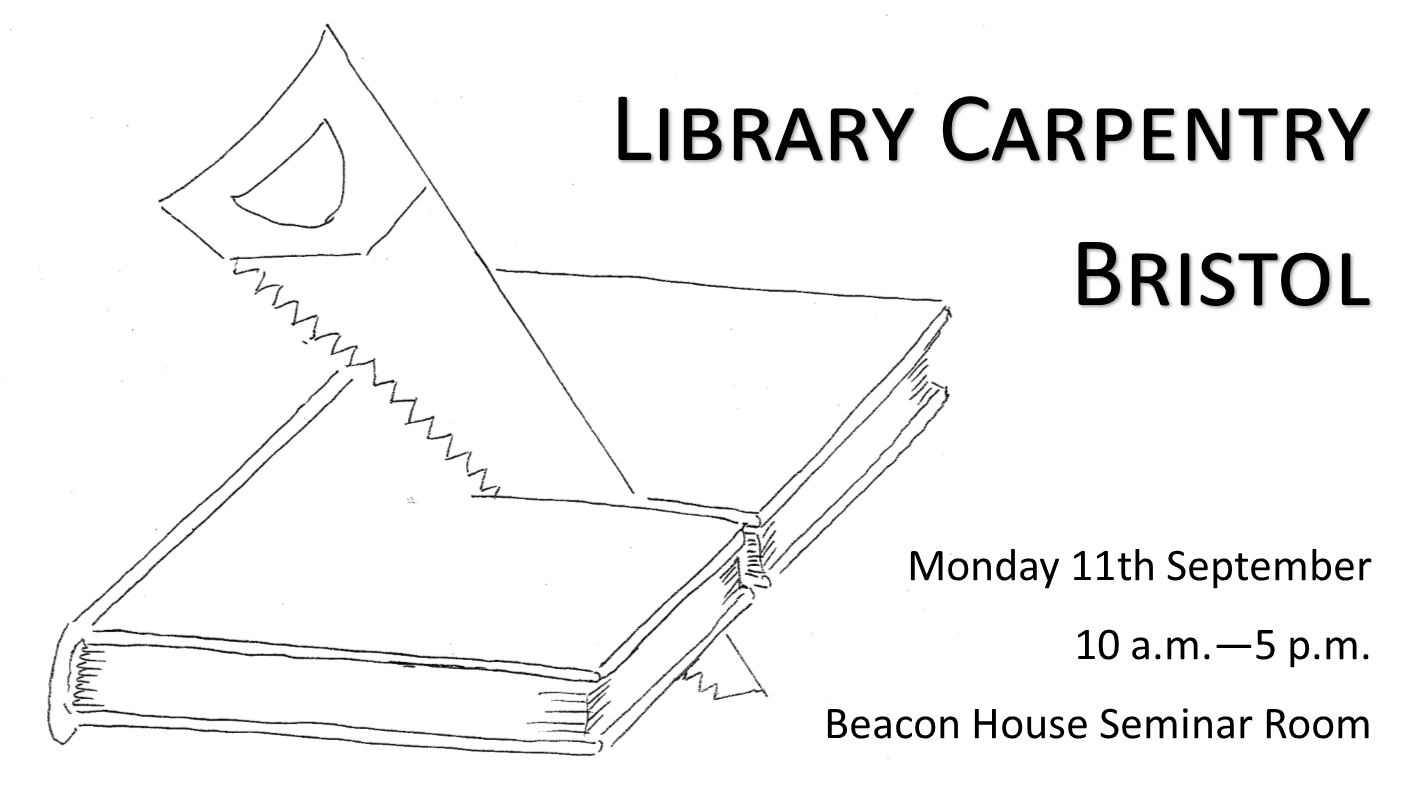Bristol Research Data Service recently hosted a Library Carpentry workshop in collaboration with colleagues at the University of the West of England and the University of Bath – read on to find out what it was about and what’s happening next.

What is Library Carpentry?
Library Carpentry is a set of software skills lessons created by librarians, for librarians, covering a variety of subjects including Git, SQL, Python, and using the Unix command line. The course materials are developed and maintained by volunteers, and are intended to be taught by one or more instructors (also volunteers). Each lesson is also suitable for self-study. All the course materials are freely available online under a permissive use licence (CC-BY) and can be reused and remixed if needed.
Library Carpentry is an offshoot of Software Carpentry and Data Carpentry (the latter are aimed at academic researchers) and follows the same basic lesson structure – short introductions to key concepts followed by examples to work through to solidify learning. The tools and software packages taught are typically open source to maximise opportunity of use.
Why Bristol?
Naked self-interest! Bristol Research Data Service staff were keen to learn more about data manipulation techniques, and an informal poll of the GW4 Alliance Data Services Working Group showed that there was interest in other local institutions as well. We ended up advertising the event to all GW4 and AULIC institutions.
Event specifics
We asked potential attendees which modules they would most be interested in, and on that basis selected the Introduction to data and OpenRefine lessons. Library Carpentry has a very active Gitter group, so after submitting a plea there and contacting the organisers of past workshops (thank you to Tabitha Witherick!) we had two instructors volunteer: Dave Rowe (introduction to data) and Owen Stephens (OpenRefine).
We also needed helpers: people to assist on the day with general troubleshooting (for example, network connection issues). We had volunteers from both library staff and IT Services across Bristol, Bath and UWE. It’s safe to say that the workshop would not have run anywhere near as effectively as it did without them, so thank you very much to all the helpers – and of course, our instructors!
Over seven hours we covered the two chosen modules, with time for questions, general discussion and working through examples using library-related data.
Outcomes and follow-up
Feedback from attendees has so far been excellent, with several people indicating that they’ll be using OpenRefine for specific tasks the near future, and even teaching colleagues how to use it. At Bristol we had several requests for a second workshop from people unable to attend the first one; whilst another formal workshop might not be possible, we’re looking into a ‘flipped classroom’ or collaborative learning approach of short 1-2 hour sessions to pass our learning on to other colleagues and keep our skills fresh.
All in all, it was a very useful day, and we’d highly recommend attending or hosting a Library Carpentry workshop if you have a chance.
